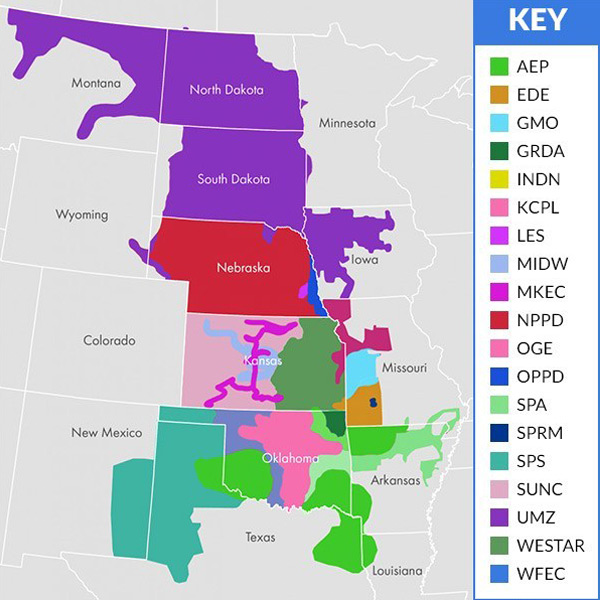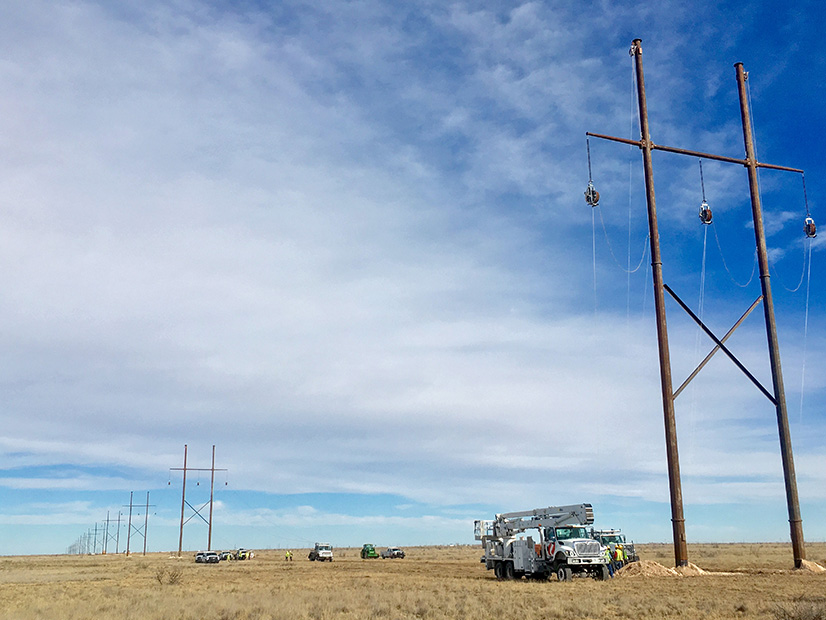FERC on Tuesday approved SPP tariff revisions that establish an annual process for each transmission pricing zone to develop a single set of uniform zonal planning criteria used to evaluate zonal reliability upgrades in the RTO’s regional transmission planning process. The changes became effective Wednesday (ER22-1719).
The commission found the proposed process allows for the “collaborative development” of zonal planning criteria in multi-transmission owner zones that will then be used to determine the need for zonal reliability upgrades. It said SPP’s proposal is just and reasonable as it would address concerns over the current process, which could lead to confusion and potential inequities because zones with multiple TOs can have multiple sets of local planning criteria for the same zone.
 SPP’s transmission pricing zones | SPP
SPP’s transmission pricing zones | SPPFERC’s approval came after it rejected SPP’s first attempt to change the zonal planning criteria in 2020. The commission sided with stakeholders’ argument that the proposal would have given a pricing zone’s lead TO “unilateral power” and “unduly” benefit them and the zone’s largest network load customer. (See FERC Rejects SPP’s Zonal Planning Criteria.)
The commission said SPP’s revised proposal addressed its concern because it establishes a defined process by which a zone’s TOs and transmission customers can provide input on potential planning criteria, and comment and ultimately vote on draft criteria developed by the facilitating transmission owner (FTO).
“SPP’s proposed zonal planning criteria process provides for meaningful opportunities for input from interested stakeholders,” FERC said.
The RTO has 18 transmission pricing zones, 10 with multiple TOs. The revised proposal designates an FTO responsible for facilitating that zone’s development of a single set of planning criteria for that zone. SPP has recommended that the network customer with the zone’s largest total network load be the FTO.
A zone’s TOs and customers that receive long-term service can submit proposed planning criteria to the FTO by May 1 each year. The FTO will have until June 1 to post its draft criteria, and all interested parties will then have 30 days to respond with written comments. The FTO must hold at least one open meeting each year and conduct a two-step voting process that includes a load-weighted vote of all transmission customers receiving service to approve the final criteria.
FERC’s approval culminates a process that began in 2018 with SPP’s Holistic Integrated Tariff Team. The stakeholder group made 21 recommendations that included the zonal planning criteria. (See SPP Board Approves HITT’s Recommendations.)
SPP’s Board of Directors approved the revision request in January after it failed to pass the Markets and Operations Policy Committee. (See SPP Board of Directors/Members Committee Briefs: Jan. 25, 2022.)
The RTO’s filing at FERC drew nearly two dozen intervenors, as well as protests from Oklahoma Gas & Electric, GridLiance High Plains and a group comprising Evergy’s affiliates and ITC Great Plains. The commission disagreed with their arguments that SPP was replacing zonal planning with its regional planning process and violating FERC Order 1000’s requirements, and that the proposed two-step voting mechanism is inequitable because either the FTO or a small transmission customer can effectively veto the criteria’s adoption.




